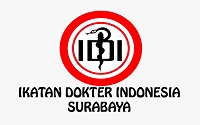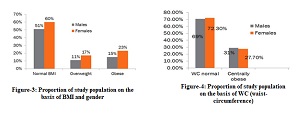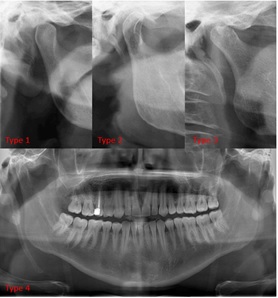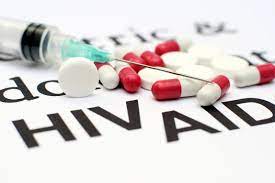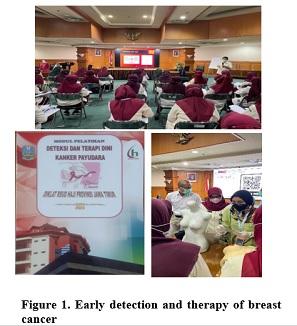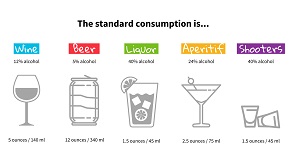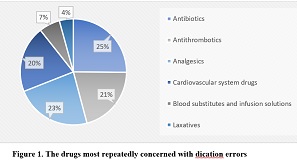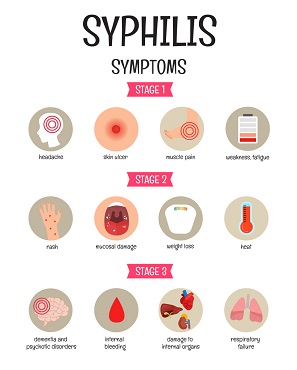Environmental Factors to Malaria Incidence : A Literature Review
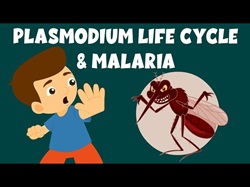
Malaria remains a major public health concern in Indonesia, particularly due to its high mortality rate among children under five, accounting for approximately two-thirds of all cases. The disease is transmitted by female Anopheles mosquitoes, which carry the Plasmodium parasite. In 2019, malaria caused 409,000 deaths globally, with 229 million cases reported, particularly in remote areas with poor access to healthcare, commonly in low-income countries. This literature review highlighted the environmental risk factors contributing to malaria incidence, based on studies from 24 scientific journals using data from the Sinta and Scopus databases. The study identified key environmental factors, including physical, chemical, biological, and socio-cultural elements, with the most significant risk linked to vector breeding sites. Among the reviewed articles, 62.5% (15 out of 24) found a statistically significant association between the presence of mosquito breeding sites and malaria incidence. Additional risk factors included the use of mosquito nets, housing conditions (specifically wall density), and nighttime outdoor activities. Effective malaria control measures require addressing these environmental factors, as they play a crucial role in the disease’s transmission. Strategies to disrupt the transmission cycle include eliminating mosquito breeding sites, applying larvicides to stagnant water, cleaning vector resting areas, promoting the use of insecticide-treated nets, and implementing Indoor Residual Spraying (IRS). A community-based, integrated approach to environmental management is essential to reducing malaria transmission and controlling its spread in affected regions.
INTRODUCTION
Malaria is caused by the Plasmodium parasite carried by anopheles mosquitoes through salivary glands when they bite in search of blood for the maturation of female mosquito eggs. Five types of species infect humans, specificallyPlasmodium ovale, Plasmodium malariae, Plasmodium falciparum, Plasmodium vivax,andPlasmodium knowlesi11. Plasmodium lives and multiplies in human red blood cells.P. falciparumis highly feared because it is responsible for 80% morbidity and 90% mortality.Anophelessp. mosquitoes undergo complete metamorphosis in their life cycle from eggs, larvae, pupae, to adults22.
Malaria's main symptom is fever, which can be periodic depending on the type of the malaria. Other symptoms include headache, nausea, vomiting, diarrhea, aches and muscle pain33.
According to the WHO assessment of malaria cases in 2022, there are expected to be 249 million cases in 85 countries and regions where malaria is endemic, which is 5 million more cases than in 202144.
Eliminating the malaria epidemic is one of the Sustainable Development Goals (SDGs) and a crucial metric that needs to be met by 2030. According to World Malaria Day 2023 in Indonesia, 1,412 deaths from 811,636 new cases of malaria in 2021 occurred in Papua Province, and 89% of malaria cases occurred in the whole country of Indonesia55. Malaria causes considerable economic losses, so it is still a problem in Indonesia. Although malaria control efforts have made progress in the past decade, 2022 saw an increase.
Malaria cases in Indonesia increased to 1.6 per 1,000 people in 2022, with a parasite's annual incidence of 1.6 per 1,000 people. API indicators are used to classify malaria endemicity in Indonesia, where eastern Indonesia includes areas with high malaria cases, Kalimantan, Sulawesi, and Sumatra include areas with moderate malaria cases, and Java and Bali include areas with low malaria cases66.
Environmental factors have a significant impact on malaria transmission. Environmental factors are all external conditions and influences that affect the life and development of organisms such as physical environment such as temperature, humidity, rain, altitude, wind, sunlight, water currents, wall conditions, the presence of wire gauze on house vents, ceilings, and hanging clothes, biological environments such as the presence of standing water, breeding grounds, livestock pens, larva-eating fish, chemical environments such as pH and salinity, as well as socio-cultural environments like the application of mosquito netting, the habit of not wearing long sleeves, the use of insect repellent, various human activities such as dam construction, road construction, mining and the construction of new settlements or transmigration77. This article reviews the environmental factors that can cause malaria, including physical, chemical, biological, social, and cultural environments.
OVERVIEW
The purpose of this literature review was to obtain interesting theoretical studies for future research by systematically identifying and analyzing malaria incidence according to the criteria selected in the topic88. The data source used was based on scientific publication literature according to the topic in this study obtain from some publication databases (Sinta and Scopus).
This article reviewed 24 articles that have been filtered and analyzed based on objectives, topic suitability, variables used, and the results of each article. The criteria used in finding the desired article were research on the determinants of malaria incidence, especially environmental factors, and articles published between 2018 and 2022.
This literature review was related to previous research on environmental factors that influence malaria incidence in Indonesia and other nations. This literature review article's goal was to summarize some of the research that had been conducted on environmental factors and had potentials to examine in detail some environmental factors that affected the incidence of malaria. Based on the collected data, the environmental factors that had the most potential for malaria transmission could be identified so that the control stage could be carried out appropriately according to the target.
According to the data collected from multiple articles, there was a relation between environmental variables and malaria incidence. The environmental factors identified in this review were breeding places, home wall condition, the presence of ceilings, getting used to going out late at night, the presence of wire gauze, bushes, livestock sheds,resting places, the use of mosquito nets, repellent, knowledge, work, treatment, counseling, the presence of puddles, the practice of hanging clothes and going to endemic areas.
The breeding place was the dominant factor that often found from the 24 articles collected. Fifteen articles, the articles number 1, 3, 4, 7, 9, 13, 14, 15, 16, 17, 18, 20, 21, 23 and 24, proved that anopheles mosquito breeding sites had a risk of malaria incidence. The methods used were case-control, with as many as 7 articles, and cross-sectional, with as many as 4, 1, and 1 observational article. Seven articles (number 7,8,12,15,18,21 and 22) stated that the habit of using mosquito nets, home wall condition, and the habit of leaving the house at night were related to malaria. Five articles found that resting places and the existence of livestock sheds were related to the incidence of malaria. There were four articles that found connection between wire gauze's existence and the existence of ceilings and the use of mosquito repellent, and one article found a relationship between malaria and a history of traveling to endemic areas. The articles reviewed are presented in Table 1 :
No. | Researcher/Year | Method | Variable | Result |
1 | Resiany |
Prastiawan A. Mobility And Behavior Influences On Import Malaria In The Kecamatan Watulimo Kabupaten Trenggalek. J Kesehat Lingkung. 2019;11(2):91-98. DOI:10.20473/jkl.v11i2.2019.91-98
Soedarto. Infectious Diseases in Indonesia. Jakarta: Sagung Seto; 2011.
Ministry of Health, Republic of Indonesia. Buku Saku Tata Laksana Kasus Malaria [Pocket Guide to the Management of Malaria Cases] 614.53 2 Ind m. Published online 2023:24. https://malaria.kemkes.go.id/sites/default/files/2024-02/X_Cetak%20Buku%20Saku%20talak%20Des%202023F.pdf
WHO. World Malaria World Malaria Report Report.; 2023. https://www.wipo.int/amc/en/mediation/%0Ahttps://www.who.int/teams/global-malaria-programme/reports/world-malaria-report-2023https://www.who.int/teams/global-malaria-programme/reports/world-malaria-report-2023
WHO. Word Malaria Day. Published online 2023. https://www.who.int/indonesia/news/events/world-malaria-day/2023
Ministry of Health, Republic of Indonesia 2022. Profil Kesehatan Indonesia [Health Profile of Indonesia].; 2023. https://www.kemkes.go.id/downloads/resources/download/pusdatin/profil-kesehatan-indonesia/Profil-Kesehatan-2021.pdfhttps://www.kemkes.go.id/id/profil-kesehatan-indonesia-2023
Sucipto C. Manual Lengkap Malaria [Comprehensive Manual on Malaria]. Edisi Pert. Gusyen Publishing; 2015.
Okoli C, Schabram K. A Guide to Conducting a Systematic Literature Review of Information Systems Research. SSRN Electron J. Published online 2012. doi:10.2139/ssrn.1954824
Nababan R, Umniyati SR. Faktor lingkungan dan malaria yang memengaruhi kasus malaria di daerah endemis tertinggi di Jawa Tengah : analisis sistem informasi geografis [Environmental and behavioral factors affecting malaria cases in high endemic area of Central Java: a geographic information system analysis]. BKM J Community Med Public Heal. 2017;34 Nomor 1:11-18. DOI: 10.22146/bkm.26941
Sofia R. Analisis Faktor Risiko Lingkungan Yang Berhubungan Dengan Riwayat Malaria [Analysis of Environmental Risk Factors Related to the History of Malaria]. AVERROUS J Kedokt dan Kesehat Malikussaleh. 2018;2(2):65. DOI: 10.29103/averrous.v2i2.420
Darmawansyah D, Habibi J, Ramlis R, Wulandari W. Determinan Kejadian Malaria [Determinants of Malaria Incidence]. Jurnal Ilmu Kesehatan Masyarakat. 2019;8(03):136-142. doi:10.33221/jikm.v8i03.370 https://journals.stikim.ac.id/index.php/jikm/article/view/370
Isnaeni L, Saraswati LD, Arie Wuryanto M, Udiyono A. Faktor Perilaku Dan Faktor Lingkungan Yang Berhubungan Dengan Kejadian Malaria Di Wilayah Kerja Puskesmas Gebang Kabupaten Purworejo [Behavioral and Environmental Factors Associated with Malaria Incidence in the Gebang Health Center Work Area, Purworejo Regency]. J Kesehat Masyarakat, 7. 2019;7(2):31-36. http://ejournal3.undip.ac.id/index.php/jkm
Riska, Sety L, Karimuna SR. Hubungan Kondisi Fisik Rumah, Lingkungan, Dan Perilaku Masyarakat Dengan Kejadian Malaria Di Wilayah Kerja Puskesmas Mabodo Kecamatan Kontunaga Kabupaten Muna Tahun 2019 [The Relationship Between Physical Housing Conditions, Environment, and Community Behavior with Malaria Incidence in the Mabodo Health Center Work Area, Kontunaga District, Muna Regency, 2019]. Endem J. 2020;1(2):7-15. https://ojs.uho.ac.id/index.php/Endemis/article/view/16660
Hamdani N, Kartini, Mira M. Faktor-Faktor Yang Berhubungan Dengan Kejadian Malaria Di Wilyah Kerja PuskesmasWandai Distrik Wandai Kabupaten Intan Jaya Papua [Factors Associated with Malaria Incidence in the Wandai Health Center Work Area, Wandai District, Intan Jaya Regency, Papua]. J Promot Prev. 2020;2(2):1-7. https://journal.unpacti.ac.id/index.php/JPP/article/view/163/104
Lubis R, Sinaga BJ, Mutiara E. Pengaruh Pemakaian Kelambu, Kawat Kasa dan Kondisi Geodemografis Terhadap Kejadian Malaria di Kabupaten Batu Bara [The Influence of Bed Net Use, Screen Mesh, and Geodemographic Conditions on Malaria Incidence in Batu Bara Regency]. J Kesehat Lingkung Indones. 2021;20(1):53-58. DOI:10.14710/jkli.20.1.53-58
Putra H. Faktor Yang Memengaruhi Kejadian Malaria Di Wilayah Kerja Puskesmas Leuser Kabupaten Aceh Tenggara Provinsi Aceh Tahun 2019 [Factors Influencing Malaria Incidence in the Leuser Health Center Work Area, Aceh Tenggara Regency, Aceh Province, 2019]. J Komunitas Kesehat Masy. 2020;1(2):40-50. DOI:10.36090/jkkm.v1i2.589
Masrizal M, Putri TS, Hasni I. Environmental and Behavioral Conditions That Affect Malaria Events in Padang City. J Berk Epidemiol. 2020;8(2):164. DOI:10.20473/jbe.v8i22020.164-171
Manangsang F, Ganing A, Purba ERV, Rumaseb E, Sarwadhamana RJ. Analisis Faktor Risiko Lingkungan terhadap Kejadian Malaria di Kabupaten Kerom Provinsi Papua [Analysis of Environmental Risk Factors for Malaria Incidence in Kerom Regency, Papua Province]. Indones J Hosp Adm. 2021;4(2):37. doi:10.21927/ijhaa.2021.4(2).37-42 https://ejournal.almaata.ac.id/index.php/IJHAA/article/view/2137
Setiawan HF, Hamisah I, Fahdhienie F. Faktor Risiko Kejadian Malaria Pada Masyarakat Di Wilayah Kerja Puskesmas Krueng Sabee Kabupaten Aceh Jaya [Risk Factors for Malaria Incidence in the Community within the Krueng Sabee Health Center Work Area, Aceh Jaya Regency]. J Bahana Kesehat Masy (Bahana J Public Heal. 2021;5(2):65-71. DOI: 10.35910/jbkm.v5i2.527
Mofu RM. Hubungan Lingkungan Fisik, Kimia dan Biologi dengan Kepadatan vektor Anopheles di Wilayah Kerja Puskesmas Hamadi Kota Jayapura [The Relationship Between Physical, Chemical, and Biological Environments and Anopheles Vector Density in the Hamadi Health Center Work Area, Jayapura City]. J Kesehat Lingkung Indones. 2013;12(2):120-126. https://ejournal.undip.ac.id/index.php/jkli/article/view/8546
Madayanti S, Raharjo M, Purwanto H. Faktor Risiko Yang Mempengaruhi Kejadian Malaria di Wilayah Distrik Jayapura Selatan Kota Jayapura [Risk Factors Affecting Malaria Incidence in the Jayapura Selatan District, Jayapura City]. J Kesehat Lingkung Indones. 2022;21(3):358-365. doi:10.14710/jkli.21.3.358-365
Afrina Y, Raharjo M, Nurjazuli N. Literatur Review: Faktor Lingkungan Dan Kepadatan Larva Anopheles Dengan Kejadian Malaria [Literature Review: Environmental Factors and Anopheles Larva Density in Relation to Malaria Incidence]. J Ris Kesehat Poltekkes Depkes Bandung. 2021;13(1):20-28. doi:10.34011/juriskesbdg.v13i1.1828
Mualana T, Elvin SD, Sufri S. Kontribusi Faktor Determinan Lingkungan terhadap Prevalensi Kasus Malaria di Kota Sabang, Provinsi Aceh [Contribution of Environmental Determinants to the Prevalence of Malaria Cases in Sabang City, Aceh Province]. Balaba J Litbang Pengendali Penyakit Bersumber Binatang Banjarnegara. Published online 2022:87-102. doi:10.22435/blb.v18i1.5966 https://journalkolegium.epidemiologi.id/index.php/kei/article/view/98/86
Hidayati F, Raharjo M, Martini M, Wahyuningsih NE, Setiani O. Hubungan Kualitas Lingkungan dengan Kejadian Malaria (Wilayah Endemis Malaria, Lingkup Kerja Puskesmas Kaligesing, Kabupaten Purworejo Tahun 2022) [The Relationship Between Environmental Quality and Malaria Incidence (Malaria Endemic Area, Kaligesing Health Center Work Area, Purworejo Regency, 2022)]. J Kesehat Lingkung Indones. 2023;22(1):21-27. doi:10.14710/jkli.22.1.21-27
Istiana I, Hadi U, Dachlan YP, Arwati H. Malaria at forest areas in south kalimantan, indonesia: Risk factors and strategies for elimination. Open Access Maced J Med Sci. 2021;9:1147-1154. doi:10.3889/oamjms.2021.7012
Watmanlusy E, Raharjo M, Nurjazuli N. Analisis Spasial Karakteristik Lingkungan dan Dinamika Kepadatan Anopheles sp. Pengaruhnya terhadap Kejadian Malaria di Kecamatan Seram Barat Kabupaten Seram Bagian Barat Maluku [Spatial Analysis of Environmental Characteristics and Anopheles spp. Density Dynamics and Their Impact on Malaria Incidence in Seram Barat District, West Seram Regency, Maluku]. J Kesehat Lingkung Indones. 2019;18(1):12. doi:10.14710/jkli.18.1.12-18
Hamre KES, Dismer AM, Rogier E, et al. Spatial Clustering and Risk Factors
for Malaria Infections and Marker of
Recent Exposure to Plasmodium falciparum from a Household Survey in Artibonite, Haiti. Am J Trop Med Hyg. 2023;109(2):258-272. DOI: 10.4269/ajtmh.22-0599
Musoke D, Miiro G, Ndejjo R, et al. Malaria prevention practices and associated environmental risk factors in a rural community in Wakiso district, Uganda. PLoS One. 2018;13(10):1-13. DOI: 10.1371/journal.pone.0205210
Okunlola OA, Oyeyemi OT. Spatio-temporal analysis of association between incidence of malaria and environmental predictors of malaria transmission in Nigeria. Sci Rep. 2019;9(1):1-11. DOI: 10.1038/s41598-019-53814-x
Bhondoekhan FRP, Searle KM, Hamapumbu H, et al. Improving the efficiency of reactive case detection for malaria elimination in southern Zambia: A cross-sectional study. Malar J. 2020;19(1):1-13. DOI: 10.1186/s12936-020-03245-1
Copyright (c) 2024 Nani Sri Untari nani, Mursid Rahardjo, Martini

This work is licensed under a Creative Commons Attribution-ShareAlike 4.0 International License.
- The journal allows the author to hold the copyright of the article without restrictions.
- The journal allows the author(s) to retain publishing rights without restrictions.
- The legal formal aspect of journal publication accessibility refers to Creative Commons Attribution Share-Alike (CC BY-SA).
- The Creative Commons Attribution Share-Alike (CC BY-SA) license allows re-distribution and re-use of a licensed work on the conditions that the creator is appropriately credited and that any derivative work is made available under "the same, similar or a compatible license”. Other than the conditions mentioned above, the editorial board is not responsible for copyright violation.






